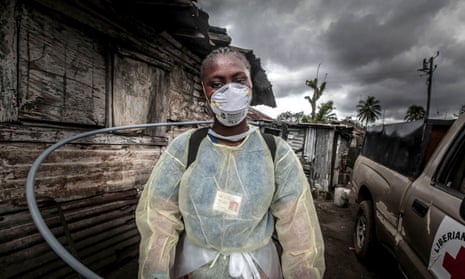It’s been almost two years since the Department for International Development (DfID) experimented with payment by results (PbR) contracts. There’s been talk of this becoming their standard funding model instead of grants, so will it revolutionise aid giving or is it a really a “demoralising nightmare” as it was once described?
Payment by results is a form of funding intended to improve efficiency and innovation with the idea that aid should be judged on impact. The donor will agree certain predefined results with the recipient, and will only pay for the activities once the results are achieved by the deadline. While the recipient is free to work in the way it chooses, they have to pay for the work upfront, which can be risky.
Last year Bond assessed the payment by results model by speaking to organisations who were engaged in these contracts. Their advice for NGOs following the assessment: to proceed with caution.
Michael O’Donnell, Bond’s head of effectiveness and learning explains this model “puts a lot more at stake”. While those working in a stable context are unlikely to be taking on a huge amount of risk, says O’Donnell, “if you’re working in a fragile state for example, there will be factors that are outside your control and the risk is potentially higher of things going wrong.”
Oxfam: ‘there was a lot more senior management oversight’
Results-based aid can add serious pressure to the project implementation. On the positive side, this pressure encourages organisations to focus their attention on the results. But for Yusef Salehi, former head of programme funding at Oxfam, a DfID water, sanitation and hygiene (Wash) recipient, “that’s where all of the pause for thought is for me”. For him, this focus on numbers dehumanises development work.
“There were conversations that I’d never heard before, like ‘this community is just not delivering’. You’d hear talk that maybe we shouldn’t be focusing our efforts on these communities which are proving very difficult to reach. And that’s the opposite of what we want to be doing.”
Although Salehi describes their Wash programmes in Kenya and the Democratic Republic of Congo as performing well, it was a completely new way of working for the organisation, which turned out to be much more centralised, despite the idea that PbR would encourage a hands-off approach. “There was a lot more senior management oversight of a programme. [Oxfam] normally tries to devolve its decision-making as close to country level as possible. That didn’t work for this because it was so new.”
But in many ways this has increased efficiency – exactly as these results-based models intended. “Decision-making was much easier. It was such a luxury,” admits Salehi, who explained how often in large INGOs, decision-making can be quite political.
But how sustainable is this model? Salehi says Oxfam’s normal model is about building long-term relationships with partners, and due to the time frame and requirements of PbR, there wasn’t so much scope for this.
Swift Consortium: ‘we had a focus beyond the deliverables DfID was paying for’
Francesco Rigamonti, global programme manager of the Swift Consortium believes it is possible to do more with a PbR programme than just the pre-agreed results, despite the potential bias towards activities which can be more easily measured. “Our DRC Wash programme was implemented in line with the DRC government’s goals to reduce child mortality, and so had a focus beyond the [sanitation-focused] deliverables that DfID was paying for.”
Through Bond’s research, O’Donnell says PbR has encouraged organisations to improve their monitoring, which is a good thing. Pip Walker at Opportunity International, who is managing their DfID PbR-funded Girls’ Education Challenge, agrees: “It’s helped us define the value of our project. We’ve done an increased amount of monitoring and evaluation, soliciting feedback to see how our impact can be bettered.”
However, increased monitoring and verification means another bureaucratic hoop to jump through. Walker describes it as a “big brother aspect”. “It’s a much different way of operating than we ever have before.”
Whether this tighter monitoring and high-pressured environment has had a real impact is still hard to tell, as many of these PbR contracts are still in their early days. What is clear however, is that it has been an extremely steep learning curve for all parties.
Opportunity International: ‘60% of my time is now on data management’
But the donors have also had to learn to be flexible in some cases. For example, Oxfam had to cut short a project in Liberia due to the Ebola outbreak, but DfID paid them for their work nonetheless. Organisations have had to quickly adapt to the increased monitoring and data analysis (Walker says she now spends 60% of her time on data management). And the recipients have had to adapt their outcomes – Oxfam would normally put their resources into advocacy and community engagement, rather than beneficiary numbers.
What is clear however, is that it’s not an appropriate model for DfID to use to fund all development contracts. Salehi says: “There are obvious benefits I’ve seen, but the idea that that can be our primary mechanism for funding development work is a pretty dangerous proposition.”
Join our community of development professionals and humanitarians. Follow @GuardianGDP on Twitter

Comments (…)
Sign in or create your Guardian account to join the discussion